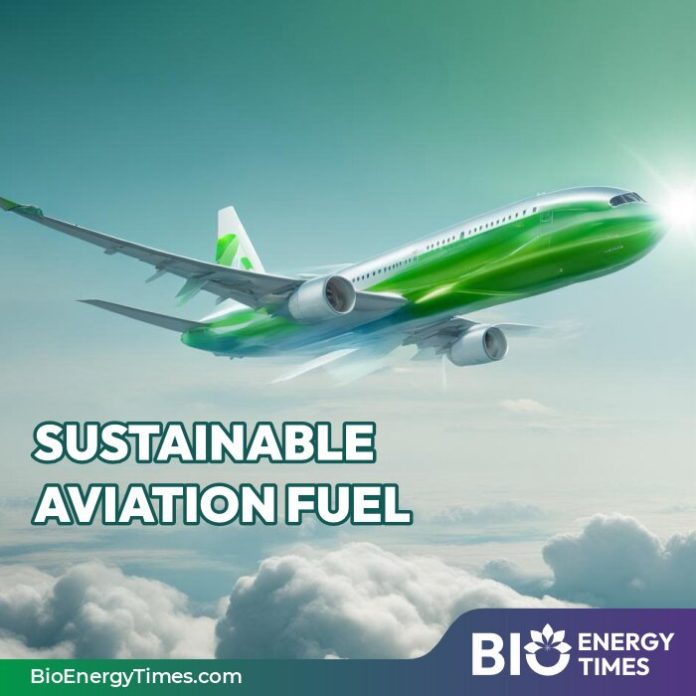South Korea’s refining industry is set to gain momentum with the implementation of the “Petroleum and Petroleum Alternative Fuel Business Act” from August 7, signaling a significant step towards sustainable aviation. This legislation aims to bolster the production of eco-friendly petroleum alternative fuels, crucial for achieving carbon neutrality.
Sustainable Aviation Fuel (SAF) has emerged as a pivotal solution in reducing carbon emissions, potentially cutting them by up to 80% compared to traditional aviation fuel. Globally, there is a strong push for SAF adoption, exemplified by the European Union mandating a minimum of 2% SAF blending starting in 2025, with plans to increase to 70% by 2050. The United States also supports SAF utilization through tax incentives.
Earlier this year, S-Oil became the first domestic refiner to integrate bio raw materials, including waste cooking oil, into its refining processes. In April, S-Oil achieved ISCC CORSIA certification, validating its production of sustainable aviation fuel for the international market. Last month, S-Oil furthered its commitment to SAF by signing a memorandum of understanding for the “Research and Development of Euglena-based Bio Aviation Fuel” with a startup and Korea University.
In a significant milestone, HD Hyundai Oilbank exported SAF for the first time from South Korea last month, supplying it to Marubeni, a Japanese trading company, thereby enhancing South Korea’s presence in the global SAF market.
According to industry sources on July 10, the enforcement of the Petroleum Business Act on August 7 is expected to accelerate the SAF business among domestic refiners. This legislation aims to support the expansion of eco-friendly petroleum alternative fuels, aligning with global efforts to combat climate change and achieve carbon neutrality.
Professor Kim Jae-hoon from Sungkyunkwan University stressed the importance of advancing technology research and development to meet the 2050 SAF targets. He highlighted the necessity for new technologies beyond current strengths in ‘coprocessing’ and upcoming ‘hydrogenation of fats and oils’ to achieve these goals.
The SAF market is poised for substantial growth, with projections from Mordor Intelligence indicating a market size expansion from approximately 1 trillion won in 2021 to around 29 trillion won by 2027. Bio aviation fuel, which accounted for a mere 0.01% of total aviation fuel in 2020, is anticipated to rise to 35% by 2070.
Driven by international commitments such as the Paris Agreement, which aims for global carbon neutrality, the adoption of SAF is pivotal in reducing greenhouse gas emissions. South Korea’s new legislation, coupled with initiatives by domestic refiners like S-Oil and HD Hyundai Oilbank, positions the country as a significant player in the global SAF market.
As global efforts intensify towards sustainability, the development and commercialization of SAF will play a critical role in mitigating aviation’s environmental impact. The enforcement of the Petroleum Business Act on August 7 marks a transformative moment for South Korea’s refining industry, propelling it towards a greener and more sustainable aviation sector.














